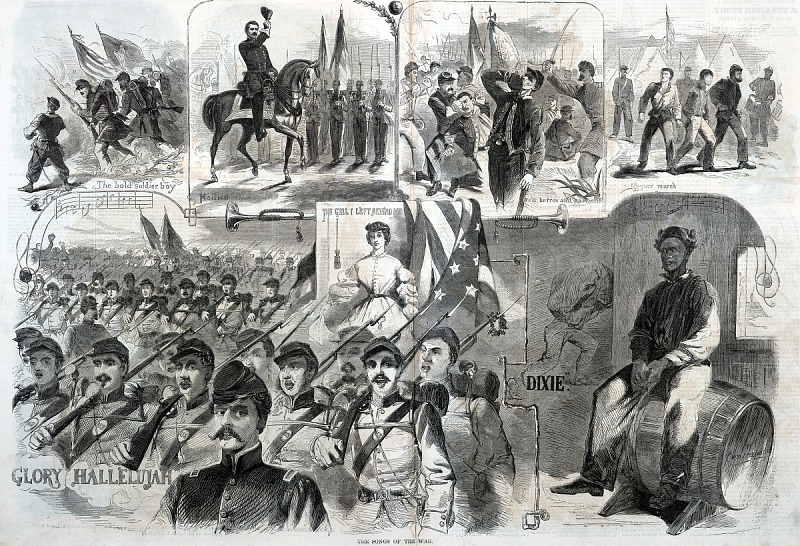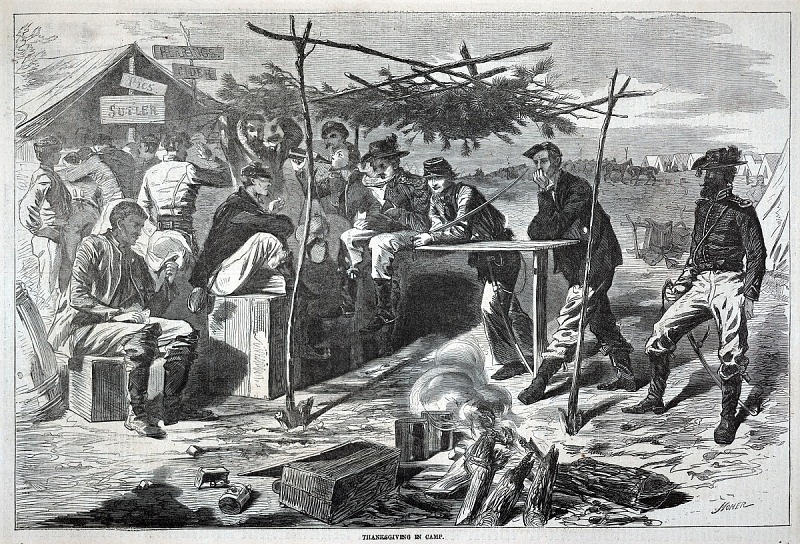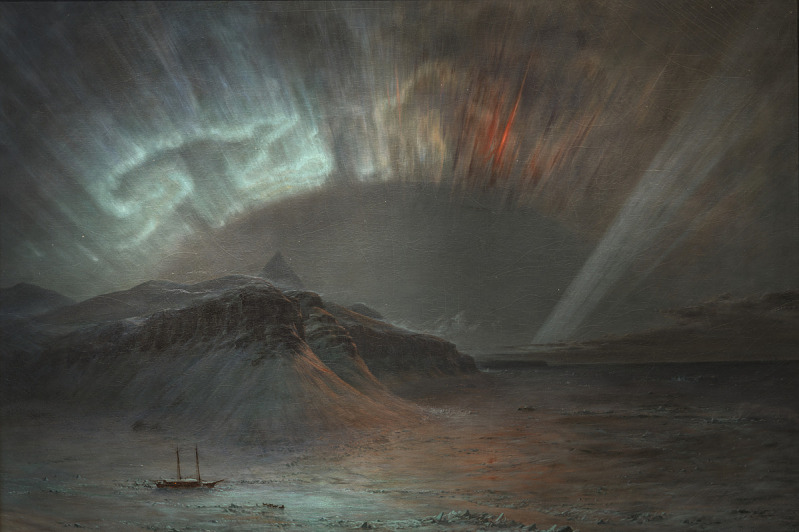Battle Hymn of the Republic
By Julia Ward Howe
Annotations by Celia Hawley/JB

1861, Smithsonian American Art Museum and its Renwick Gallery, Washington, D.C.
Mine eyes have seen the glory of the coming of the Lord:
He is trampling out the vintage where the grapes of wrath are stored;
He hath loosed the fateful lightning of His terrible swift sword:
His truth is marching on.
I have seen Him in the watch-fires of a hundred circling camps;
They have builded Him an altar in the evening dews and damps;
I can read His righteous sentence by the dim and flaring lamps:
His day is marching on.
I have read a fiery gospel writ in burnished rows of steel:
"As ye deal with my contemners, so with you my grace shall deal;
Let the Hero, born of woman, crush the serpent with his heel,
Since God is marching on."
He has sounded forth the trumpet that shall never call retreat;
He is sifting out the hearts of men before His judgment-seat:
Oh, be swift, my soul, to answer Him! be jubilant, my feet!
Our God is marching on.
In the beauty of the lilies Christ was born across the sea,
With a glory in his bosom that transfigures you and me:
As he died to make men holy, let us die to make men free,
While God is marching on.

engraving on paper, 1862, Smithsonian American Art Museum and its Renwick Gallery, Washington, D.C.

Museum and its Renwick Gallery, Washington, D.C.
Howe, julia ward. “battle hymn of the republic.” THE atlantic monthly 9, NO. 52 (february 1862): 10.
Contexts
Julia Ward Howe was a writer and abolitionist who co-founded the American Woman Suffrage Association. Despite her husband’s insistence that she remain busy keeping the home rather than writing poetry and the marital strife caused in part by her successful 1853 publication Passion-Flowers, Howe continued to write and eventually penned one of the most well-known American war poems.
Resources for Further Study
- A brief biography of Julia Ward Howe and an overview of her life
- Further biographical information in a selection by Howe’s daughter, Laura Elizabeth Howe Richards
- The Atlantic’s retrospective on the poem
- NPR’s “American Anthem” series on the song
- The Kennedy Center’s story behind the song
- More on Frederic Edwin Church and his painting’s connection between the Civil War and the aurora borealis